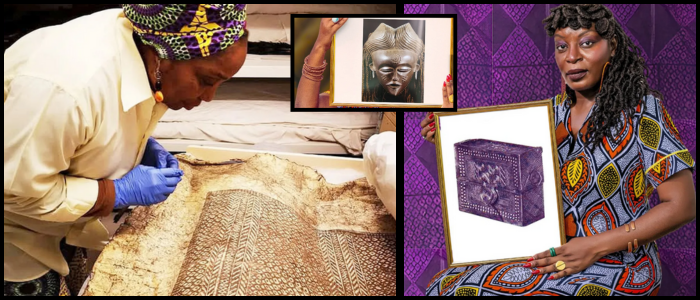At the center of this cultural revival is Samba Yonga, co-founder of the Women's History Museum of Zambia. Generations have been falsely told that the Africans could not read and write, she says, but finds like these prove quite the opposite. The project leverages social media to help people reconnect with their pre-colonial past and honor the fact that women have been central in keeping and passing on knowledge.
The Reclaiming of an Unclaimed Legacy
The Frame project, which began in 2019, showcases 50 cultural objects from Zambia online, including detailed explanations of their significance. The objects were mostly taken during colonial times and kept in museums overseas, including Sweden. Their search started when Yonga went to Stockholm and discovered that the National Museums of World Cultures had about 650 Zambian artefacts and 300 vintage photographs.
Here one of the striking objects is a leather cloak made by the Batwa people in 1911–1912. Worn by women and used to keep babies sheltered, the cloaks are crafted from lechwe antelope skin, and embellished with intricate geometric designs.
These cloaks, as well as baskets made of reeds, ceremonial masks and cowry shell belts, convey stories of community life and artistry that had been almost wiped out. Original maker's communities like those of the Bengweulu, for example, no longer have oral rememberers of these traditions; This makes preserved artefacts outside the country even more significant.
Emblems Women and the Power of Knowledge
Among the most intriguing rediscoveries is the Sona script. Sona symbols arose with the Chokwe, Luchazi, and Luvale peoples and were drawn in sand, carved into wooden furniture, or written onto objects, such as hunting toolboxes. These marks are in reference to mathematics, astronomy, ecology and social systems. Once traditional women's knowledge, the system is still remembered by some very elderly people in the community, and it is being investigated and confirmed with the assistance of the generations who remember.
The project also sought to underscore the cultural meaning of ordinary objects, like a mealie grinder from a Tonga woman. But researchers have found it did more than chop: the implement came to represent a woman's contribution to the battle against hunger over time, and was even laid on her grave as a testament to her legacy.
The Women's History Museum, established in 2016, still records and digitally catalogs these stories and things. Yonga says the trip has changed her, allowing her to learn more about her identity and culture. She hopes that other people who participated in, or visited, the Frame building will feel the same reconnection to their heritage in the course of engaging with the Frame project.
World

Ancient Zambian script redefines African knowledge systems

An ancient script and rare artefacts from Zambia are breaking open some commonly-held beliefs about Africa's past: that its people were illiterate and not knowledgeable about writing systems. One of the objects arousing interest online is a wooden hunter's toolbox decorated with an unknown script, the Sona, which is connected to communities across Zambia and its neighbours.















